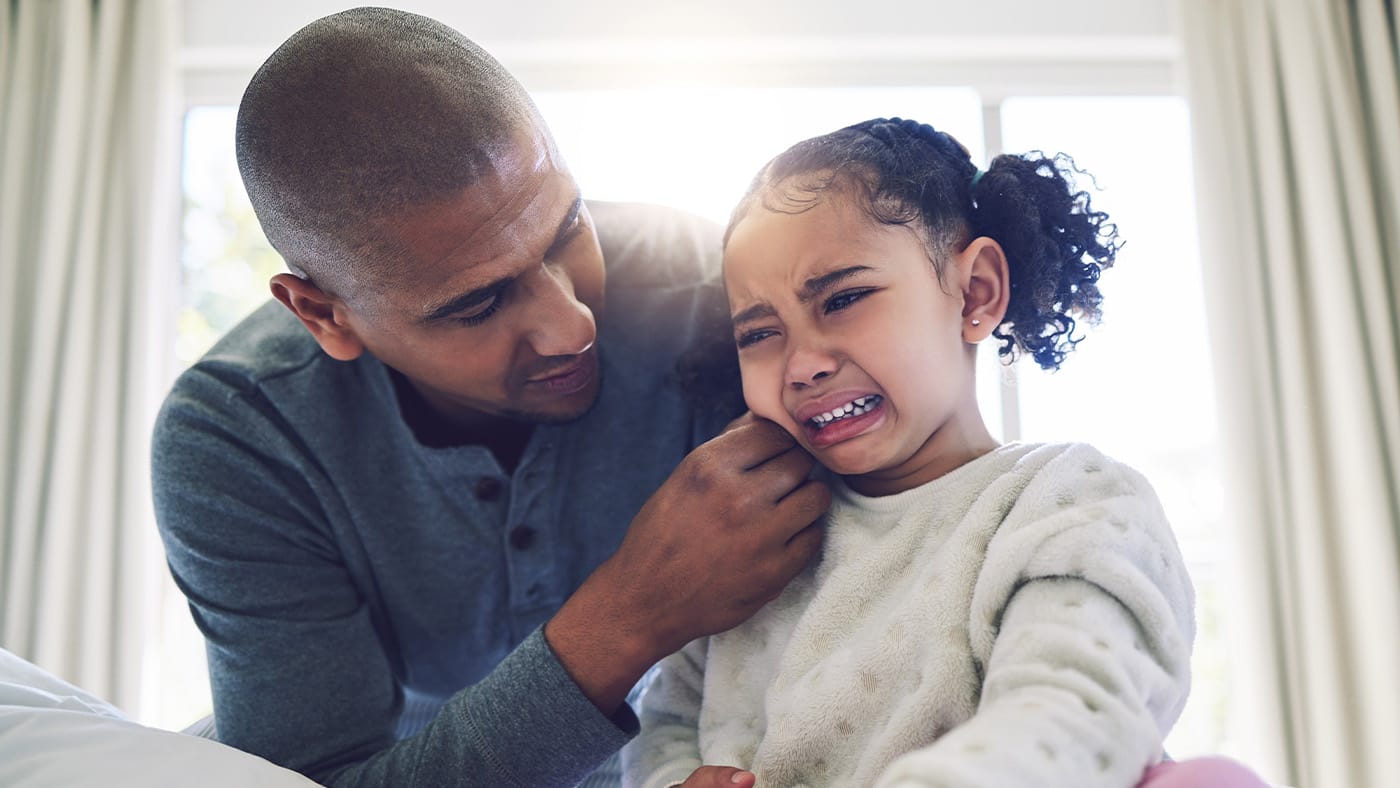It’s all fun and games until someone knocks out a tooth! Most pediatric dental emergencies are caused by traumatic injury. Rough housing, sports injuries, car accidents, eating hard or sticky foods, or chewing on non-food items (such as pencils or straws) are all common culprits. Unless your child is in excessive pain or has difficulty chewing, swallowing, or speaking, most dental problems aren’t an immediate concern and can wait a day or two until you can schedule an appointment. Some issues, however, are dental emergencies which call for more immediate attention.
If your child has a knocked-out tooth, a displaced tooth (a tooth which has been moved out of its natural position), bleeding that won’t stop, or a badly cracked tooth, these are all examples of a dental emergency. While rare, dental emergencies do happen, and knowing what to do will make these uncommon events a little less stressful and increase the likelihood of a positive outcome.
While a toothache is not necessarily a dental emergency, it can still be uncomfortable. In most cases, a combination of brushing, flossing, and pain medication effectively addresses the symptoms and the underlying issue. That said, toothaches shouldn’t be ignored, as they can become serious if left untreated. Therefore, scheduling an appointment with one of our pediatric dentists is the best option.
Tips For Preventing Dental Emergencies
- Encourage your child to avoid chewing on things like pencils, straws, toys, etc., and never use their teeth as a tool to open, tear, or cut things that aren’t food.
- Be aware of situations that put you or your family at risk of dental injury. If you have young children, be sure to childproof your home to protect them from sharp corners and other potential hazards. Always wear a seatbelt when driving or riding in a car, and make sure children are in size-appropriate car seats or booster seats.
- If your child participates in contact sports, there is an increased risk of mouth injuries. Make sure they wear a mouthguard and other protective gear. You can purchase mouthguards over the counter or visit a dentist to have one specially crafted to fit your child’s mouth.
- Schedule and keep regular dental appointments. By visiting the dentist at least twice a year, cavities or other problems can be identified early on and addressed before they become a dental emergency.
What to Do if Your Child Has a Dental Emergency
The first step in any suspected dental emergency is to contact your pediatric dentist. If it’s during normal operating hours, we may be able to get your child in right away. If it’s after hours, seek medical attention at the nearest hospital emergency department. There are a few additional steps you can take to help your child and ensure they receive the best possible dental care.
Toothache
Try flossing and brushing the areas around the tooth to remove any trapped food or debris that may be causing pain. For older kids, you can also try a salt rinse by mixing between half a teaspoon and a teaspoon of salt into eight ounces of water. Have them swish the saltwater around their mouth and spit it out. Don’t swallow it. You can also provide them with a cold compress and over-the-counter pain medications, such as ibuprofen or acetaminophen. If the pain doesn’t subside, call the dentist to schedule a visit.
Chipped tooth
If a tooth gets a small chip, it can usually be addressed at a later date, especially if the chip is small and there are no jagged edges causing pain or discomfort. Larger chips on the tooth create biting or cosmetic issues and can be fixed by your pediatric dentist.
Knocked out tooth
If your child gets a tooth knocked out, try to locate the missing tooth as quickly as possible. Once found, rinse the tooth with water. Don’t use any soaps and don’t scrub or remove any tissue. While you can attempt to gently put it back into its socket, the dentist can ensure the tooth is in its correct position and splint it to the nearby teeth to support it while it heals. The sooner a tooth can be replanted, the more likely it is to heal naturally.
Dislodged tooth
If a tooth has been dislodged but not knocked out completely, try to gently guide it back into its natural position. Don’t force it if it doesn’t want to go back in. Apply a cold compress, use pain medication as needed, and contact your dentist as soon as possible for assistance. The dentist can help you determine if the tooth can be left as is or if a better course of action should be taken.
Cracked tooth
If your child has a badly cracked tooth, rinse and save any broken pieces. Check for bleeding and apply gauze as necessary until bleeding stops. Depending on the location and depth of the crack, it can expose the tooth’s nerves, causing pain and sensitivity. Use a cold compress and pain medication to relieve pain and swelling, and call the dentist to schedule an appointment.
When in doubt, give us a call.
If you aren’t sure if something is an emergency, the team here at Families First Pediatric Dentistry and Orthodontics is happy to answer your questions and provide guidance. We’ll let you know if you need to come in right away, if it can wait, and what to do in the meantime.




